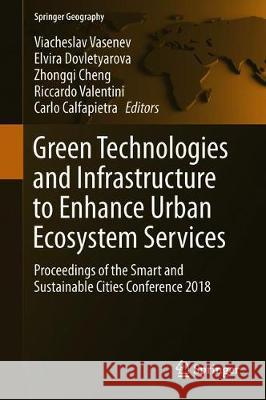Green Technologies and Infrastructure to Enhance Urban Ecosystem Services: Proceedings of the Smart and Sustainable Cities Conference 2018 » książka
topmenu
Green Technologies and Infrastructure to Enhance Urban Ecosystem Services: Proceedings of the Smart and Sustainable Cities Conference 2018
ISBN-13: 9783030160906 / Angielski / Twarda / 2019 / 280 str.
Green Technologies and Infrastructure to Enhance Urban Ecosystem Services: Proceedings of the Smart and Sustainable Cities Conference 2018
ISBN-13: 9783030160906 / Angielski / Twarda / 2019 / 280 str.
cena 684,33
(netto: 651,74 VAT: 5%)
Najniższa cena z 30 dni: 655,41
(netto: 651,74 VAT: 5%)
Najniższa cena z 30 dni: 655,41
Termin realizacji zamówienia:
ok. 16-18 dni roboczych.
ok. 16-18 dni roboczych.
Darmowa dostawa!
Kategorie BISAC:
Wydawca:
Springer
Seria wydawnicza:
Język:
Angielski
ISBN-13:
9783030160906
Rok wydania:
2019
Wydanie:
2020
Ilość stron:
280
Waga:
0.73 kg
Wymiary:
23.5 x 15.5
Oprawa:
Twarda
Wolumenów:
01











